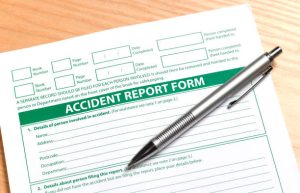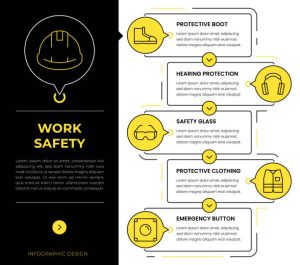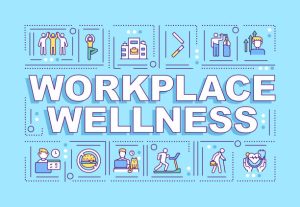
Stronger WHS Laws are there for a reason
Australia’s model Work Health and Safety (WHS) laws help ensure that the nation’s workers are protected from unsafe work practices. And employers can face steep penalties for breaching the model WHS laws. However, it’s important to remember that employees can be dismissed from their job or individually prosecuted for breaches too. Stronger WHS laws: Implications for unfair dismissal claims and how it effects you is important.
Breaches of the model WHS laws are being taken more seriously than ever before. And the laws are increasingly being amended to ensure both employers and employees are held to higher standards of conduct. As the law becomes stricter, so too does your responsibility comply.
In this article, we provide a summary of the latest changes to the model WHS laws. We look at why lawmakers and the courts are taking WHS breaches more serious than ever by sharing statistics around work-related injuries and deaths. And we detail three unfair dismissal cases that highlight how the Fair Work Commission rules on dismissals resulting from WHS breaches.
What are the WHS obligations for employees?
The model WHS laws require employers to ensure the health and safety of staff. And similarly, employees also have obligations. The model WHS laws require employees to:
- Conduct duties with care and avoid reckless behaviour.
- Wear personal protective equipment provided by their employer. Also, to avail any other safety equipment provided.
- Refrain from interfering with substances or processes related to work.
- Assume responsibility for their own workplace health and safety.
- Consider how their actions could impact on their own safety or that of co-workers.
- Notify the employer of potential hazards, risks, or health and safety issues in the workplace.
- Work with the employer, in compliance with WHS laws, to ensure successful implementation of WHS.

Poor workplace health and safety causes hundreds of deaths every year
According to Safe Work Australia, work-related injuries and illnesses cost the Australian economy $28.6 million every year. In 2021, 194 Australians died from work-related injuries. To put that figure in perspective, that’s almost one death every two days. The top three causes of work-related fatalities were:
– Vehicle collision – 41%.
– Being hit by moving objects – 13%.
– Falls from a height – 11%.
The three most dangerous jobs with the highest fatality rates were:
– Machine operators and drivers – 8.4 fatalities per 100,000 workers.
– Laborer’s – 3.5 fatalities
– Managers – 2.2 fatalities
And the three most dangerous industries with the highest fatality rates were:
– Agriculture, forestry and fishing – 13.1 fatalities per 100,000 workers.
– Transport, postal and warehousing – 7.8 fatalities
– Construction – 3.1 fatalities
There were also 120,355 serious work-related injury and disease claims in 2021. That is, for injuries that left employees incapacitated for at least one working week.
The model WHS laws are becoming stricter
With so many work-related deaths and injuries in Australia each year, the federal government is getting increasingly serious about workplace health and safety. This is evidenced by recent changes to the model WHS laws, which have introduced new obligations not only for employers, but employees too. In June 2022, a range of amendments were made to the model WHS laws. One of the key changes was the introduction of provisions concerning psychological hazards and psychosocial risk. Employers are now obligated to eliminate or reasonably minimize any psychosocial risk to employees.
A psychosocial risk is anything that can result in psychological (i.e. mental health) harm or physical harm. For instance, it could be unreasonable demands placed upon an employee. Providing inadequate support for them. A poor workplace environment. Or violence, aggression or bullying taking place in the workplace. Such stressors could cause an employee to experience psychosocial harm. For instance, a sleep disorder, depression, anxiety, post-traumatic stress disorder. It could also cause them physical harm. For instance, physical injuries or chronic disease.

Model WHS changes could see industrial manslaughter penalties of $18 million and 20 years in prison
In February 2023, further changes to the model WHS laws were agreed to by a majority of Australia’s state governments. The changes will see the model WHS laws incorporate industrial manslaughter provisions. Industrial manslaughter refers to a situation where an individual or company may be held responsible for the death of a worker as a result of their actions or failure to act. Across Australia, industrial manslaughter is covered by various state and territory laws.
The new industrial manslaughter provisions will aim to discourage behaviors that could pose a significant risk to workers. The federal government is currently determining the penalties that a breach of the industrial manslaughter provisions will carry. It could include $18 million fine for employers and up to 20 years jail time for individuals.
WHS breaches are taken more seriously than ever
Changes to the model WHS laws are placing more obligations on employers and individuals. And penalties for breaches are becoming increasingly severe. Clearly, the message from federal lawmakers is that workplace health and safety is being treated more serious than ever before.
However, the question is: are employers getting the message? And are they implementing measures to ensure their employee’s health and safety is a priority?

Employers aren’t adequately training workers
A key reason for so many work-related deaths and injuries is that many employers fail to provide appropriate work and safety planning, training an induction to employees. This is particularly the case for vulnerable or casual workers. One of the main reasons why many employers provide inadequate WHS training is that they view it as an unnecessary expense. However, those employers who have experienced the fallout of a serious workplace injury or death understand the value of putting rigorous measure in place to ensure WHS.
Statistics from Fire Safety Australia highlight the problem of inadequate workplace health and safety training provided by Australian employers:
- Only minority of employees, less than 25%, can recall the location of fire extinguishers in their workplace.
- Merely 26% of Australians have received first aid training and could provide aid in case of an emergency.
- A majority of building occupants, less than 50%, are unaware of the necessary actions to take during an emergency.
- Each year, about 30,000 Australians experience cardiac arrest, but only 9% of them survive.
- Safety procedures were absent in over 85% of organizations that experienced a confined space fatality.

Employers have received massive fines for failing to provide WHS trainin
Under the model WHS laws, employers can face steep fines for workplace injuries that were the result of inadequate workplace health and safety training. One case that exemplifies this is SafeWork NSW v Thermal Electric Elements Pty Ltd [2017]. In this case, a 17-year-old work experience student operated a brake press machine without any prior assessment, testing, or supervision. As a result, the student’s left hand was crushed, leading to the amputation of two fingertips and the loss of fine motor skills.
The NSW District Court identified multiple WHS failures by the company. This included the absence of a detailed safe operation procedure and inadequate training by an unqualified worker. Also, a lack of competency testing. This case serves as a reminder that proper, comprehensive training, and ongoing supervision are crucial for all workers. Particularly for those with limited experience, to minimize their risk of injury. The company was fined $250,000 for its failure to adhere to WHS procedures.
Employees have sued for damages for inadequate WHS training
We’ve also seen cases of employees who have taken their employer to court for injuries resulting from inadequate WHS training. In the case of Humphries v Shoalhaven City Council [2012], the NSW District court found that Shoalhaven City Council had violated its duty of care under the Civil Liability Act 2002 (NSW). That is, by not giving proper training and induction to a worker who was injured while lifting heavy concrete manholes.
The NSW District Court found that the council should have provided a workplace induction on safe lifting of manholes to the worker prior to assigning the task. As a result, the worker was granted $753,369.59 in compensation for damages.
What do stricter WHS laws mean for unfair dismissals?
Lawmakers are increasingly taking a hard-line stance on employers who breach the model WHS laws. And with stricter laws, employees who are dismissed for WHS breaches may also face more of a struggle when making an unfair dismissal claim. We’ve already seen the Fair Work Commission rule against several workers who claimed they were unfairly dismissed for breaching WHS rules.

Unfair dismissal: Failing to adhere to WHS guidelines when operating machinery
In the unfair dismissal case Kamaldeep Singh v Fenner [2015], mill operator Kamaldeep Singh was dismissed for serious and willful misconduct. That was because he had intentionally placed his hand close to the rotating drum of a high-speed machine. In his unfair dismissal claim, Mr Singh argued that it was unlikely he had intentionally put himself in danger. But his employer conducted a thorough workplace investigation into the incident. This included interviewing two “horrified” eye witnesses who claimed that Mr Singh had “intentionally placed his hand within close proximity of the rotating drum.”
One of the eye witnesses claimed that he yelled at the worker to stop and asked why he did it. But Mr Singh did not reply and walked away. The incident was later reported as a “near miss.” The Fair Work Commission found that Mr Singh had received adequate WHS training to safely use the machine. And given the eye witness testimony, the Fair Work Commission found that Mr Singh’s dismissal was not harsh, unjust, or unreasonable.

Unfair dismissal: Failing to adhere to WHS guidelines regarding drugs and alcohol
In the unfair dismissal case Toms v Harbour City Ferries Pty Limited [2015], a Sydney ferry captain was suspended then dismissed for failing a drug test. The captain, Christopher Toms, had been at the helm of a ferry when it collided into a wharf. Mr Toms was administered the drug test after the collision, when he revealed that he had smoked marijuana 16 hours for pain relief. The positive drug test breached Harbour City Ferries’ zero-tolerance policy towards drugs and alcohol.
At his unfair dismissal hearing, the Fair Work Commission found that Mr Toms had received an unfair dismissal. This was because there was no evidence of a causal link between the drug use and the accident. He was therefore reinstated to his role. However, Harbour City Ferries launched an appeal of the decision with the Full Bench of the Fair Work Commission. It found that Mr Toms’ deliberate disobedience of the company’s drug and alcohol policy was the central factor in determining the fairness of his dismissal. The Full Bench overturned the reinstatement of Mr Toms, and he appealed to the Full Federal Court.
The Full Federal Court held that the Full Bench of the Fair Work Commission had not erred in its decision. As a result, the decision of the Full Bench to overturn the reinstatement of Mr Toms was upheld.

Unfair dismissal: Failing to adhere to WHS guidelines when driving
In the unfair dismissal case Patrick O’Sullivan v Qube Logistics (2016), a delivery truck driver was dismissed for multiple instances of speeding. The driver, Patrick O’Sullivan, was tasked with delivering shipping containers and bulk products to various sites. Mr O’Sullivan was dismissed for “serious and ongoing [safety] breaches.” His breaches included seven safety-related incidents, such as driving one of his employer’s vehicles into a crossing with warning lights or bells. Also, driving unsafely and spilling one tonne of product at a customer’s site.
In January 2016, Mr O’Sullivan was dismissed after a complaint was made by a member of the public relating to speeding, dangerous driving, and tailgating. Mr O’Sullivan had been given numerous formal warnings to improve his conduct, but these were ignored. At Mr O’Sullivan’s unfair dismissal hearing, the Fair Work Commission found that his repeated safety-related incidents were a valid reason for dismissal. The Fair Work Commission was also satisfied that Mr O’Sullivan had been given ample notice and opportunity to address the various safety concerns. His dismissal was therefore not considered harsh, unjust, or unreasonable.

Conclusion to: Stronger WHS laws: Implications for unfair dismissal claims
Have you been unfairly dismissed for an alleged WHS breach?
At A Whole New Approach, we are leading workplace mediators in Australia who can assist you in making an unfair dismissal claim. (we are not lawyers). For over two decades, we have helped more than 16,000 Australian workers take action through the Fair Work Commission. Our no win, no fee service is available to you, and your initial consultation is confidential and free. If your facing a workplace investigation, or serious misconduct allegations over safety give us a call.
We are proud of our staff and the outcomes they get for our clients.
To discuss your situation and explore how we can assist you, contact us at 1800 333 666.
Articles similar to: Stronger WHS laws: Implications for unfair dismissal claims
The power of relationships at work






